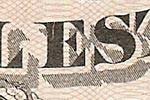Counterfeit $5 dos caritas
The differences that de la Garza listed in his letter of 6 February 1915 LG papers, 3-H-5 were referenced to annotations that he made on the counterfeit examples. Without these it is difficult accurately to identify most of the points he raised (and even whether they referred to the $5 note, the $10 note, or both). The differences listed were:
| GENUINE | COUNTERFEIT |
|---|---|
|
'El Estado de Chihuahua’ banner touches portraits |
banner is further from the portraits |
| secret printer’s marks | |
| strokes of the ‘E’ are larger | |
|
|
shadows of the ‘E S’ are different |
| has part of a star | |
| figura touches the figuras above | space between figuras |
| triangles are larger and ray clearer | |
| shadows of ‘A’ different | |
| figura touches the side | space between figura and side |
| two white spots and the black line almost touch the other and curves (dos manchas blancas y la raya negra llegar casi a tocar la otra y hace curva) |
straight |
| the straight line almost to the top of the star and curves (la linea recta casi hasta arriba de la Estrella y hace vurva) |
line is curved |
| the curve exits where the line ends (sal la curva donde acaba la linea) |
is below the line (esta metido debajo de dicha linea) |
| the shading of the letters is unbroken, without gaps | the shading had many gaps |
|
|
|
| the j (of Vargas'signature) is (limpia) |
the j has a line that look more like a feature of the o (la j tiene una linea que mas bien parece un rasgo de la o) |
| portraits and portraits’ shading different | |
| this figura has two | three |
| background on reverse does not touch sides but leaves a white space | background touch sides |
However, two types of counterfeit Series C notes are easy to recognise. There are several minor differences, but one particularly distinguishing feature is the relationship of the denomination ‘shield’ on the back to the line beneath the griffin. In the genuine notes the ‘shield’ flows into the line, on one set of counterfeits there is a distinct break, whilst on another the alignment is completely different.
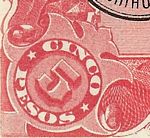 |
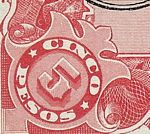 |
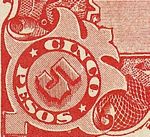 |
| Type 1 | Type 2 | Type 3 |
As for the portraits, there are various differences, though there are also differences amongst genuine notes. For Madero Types 1-3 are from genuine printings, whilst Types 4-5 are from counterfeits
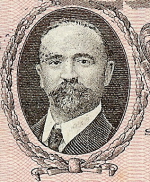 |
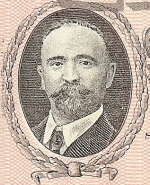 |
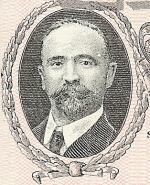 |
| Type 1 | Type 2 | Type 3 |
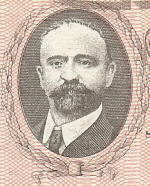 |
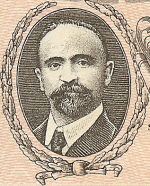 |
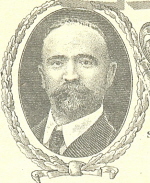 |
| Type 4 | Type 5 | Type 6 |
Likewise, for González Types 1-3 are from genuine printings, whilst Types 4-5 are from counterfeits
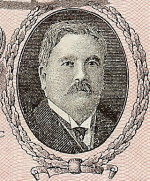 |
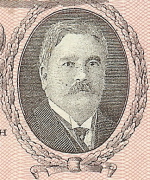 |
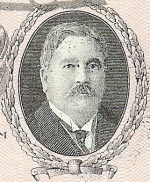 |
| Type 1 | Type 2 | Type 3 |
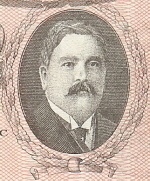 |
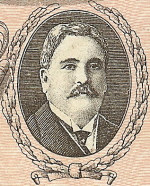 |
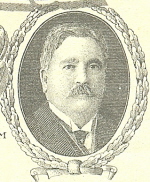 |
| Type 4 | Type 5 | Type 6 |



